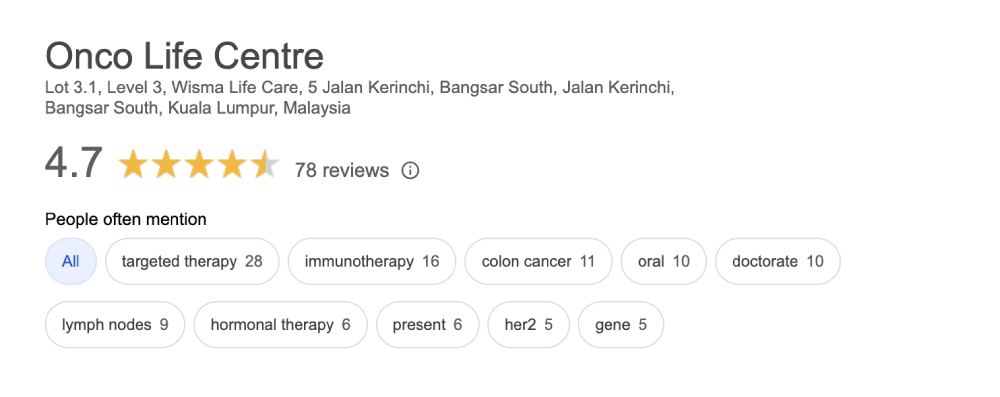





There are different types of stomach cancer and the frequency of these cancer subtypes are as follows.
90-95%
1-5%
2%
1%
1%
1%
There is no sure way to prevent stomach cancer, but there are things you can do that might lower your risk.
Talk to our stomach cancer oncologists at Onco Life Centre about your treatment options. Treatment recommendations by our oncologists at Onco Life Centre are tailored and personalized and depends on stage of stomach cancer, genetic changes in the tumor, and the patient’s preferences and overall health. There are successful new treatments for stomach cancer as the landscape of drug research and development in stomach cancer has evolved tremendously over the last 5 years.
Surgery is often part of the treatment for stomach cancer if it can be done. Depending on the type and stage of your cancer, surgery might be used to remove the cancer and part or all of your stomach. Surgery (often along with other treatments) offers the only real chance to cure stomach cancer. Even if the cancer is too widespread to be completely removed, an operation could help prevent bleeding from the tumor or keep the stomach from being blocked. This type of surgery is known as palliative surgery. Read More ...
Chemotherapy for gastric cancer can be given before surgery to shrink the tumor and make it easier to completely remove it. Chemo for stomach cancer may also be given, often along with radiation, after surgery to kill any groups of cancer cells that may have been left behind but are too small to be seen. The goal is to keep the cancer from coming back. Read More ...
Targeted therapy for stomach cancer targets the cancer’s specific genes, proteins, or the tissue environment that contributes to cancer growth and survival. This type of treatment blocks the growth and spread of cancer cells while limiting damage to healthy cells. To find the most effective treatment, our stomach cancer specialists will run tumor profiling tests to identify the genes, proteins, and other factors in your tumor. Read More ...
Immunotherapy for gastric cancer is designed to boost your body's natural defenses to fight the cancer. The PD-1 pathway is critical in the immune system’s ability to control cancer growth. PD-1 and PD-L1 antibodies block this pathway and can stop the growth of stomach cancer. Immunotherapy for stage 4 stomach cancer can result in a favorable outcome for patients with PD-L1 positive or MSI-H disease.
Before surgery, radiation can be used along with chemo to try to shrink some tumors to make surgery easier. After surgery, radiation can be used to kill very small areas of cancer that cannot be seen and removed during surgery. Radiation, especially when combined with chemotherapy (chemo), might delay or prevent the cancer from coming back after surgery and may help people to live longer. Radiation can also be used to slow the growth and ease symptoms of advanced stomach cancer such as pain, bleeding, and trouble eating.
Onco Life Centre combines key elements of stomach cancer care and stomach cancer treatment under one roof, with convenience and speed. At Onco Life Centre, we have the necessary medical disciplines to achieve this. Our board certified highly experienced consultant oncologists have earned recognition for excellence in the field of stomach cancer treatment, providing our patients with the most advanced stomach cancer treatment options.

Dr. Christina Ng is a Consultant Medical Oncologist and Founder President of Empowered, The Cancer Advocacy Society of Malaysia.…
Treatment cost for stomach cancer depends on several factors, such as the staging and the type of the stomach cancer. Generally, using only chemotherapy is cheaper compared to using targeted therapy or immunotherapy. The more advanced the cancer stage, the more expensive it becomes to treat the cancer. At Onco Life Centre, the cost for treating stomach cancer using chemotherapy for most of our patients is around MYR5,000 per cycle. Stomach cancer Targeted Therapy can cost from MYR6,000, depending on the specific type of targeted therapy drug used. The cost of stomach cancer immunotherapy can range from MYR10,000 and above depending on the specific type and dosage of immunotherapy drug used.
Patients and their families have opportunities to talk about the way they are feeling with our oncologists, nurses, counselors, or join our psychosocial program and support group at Onco Life Centre.

